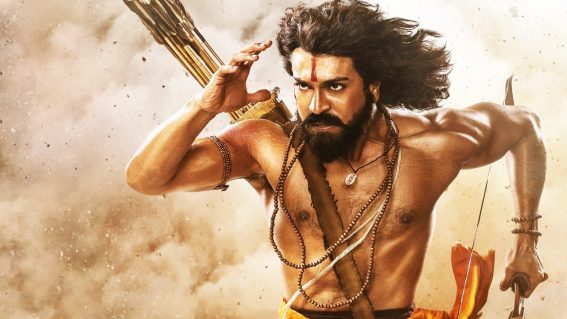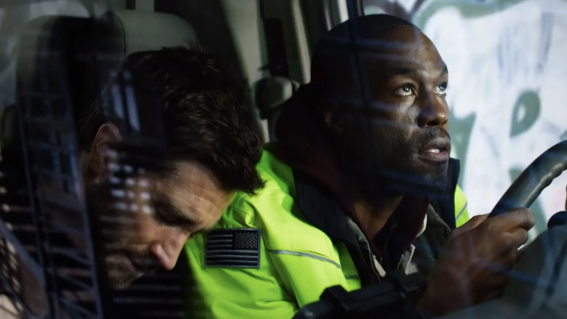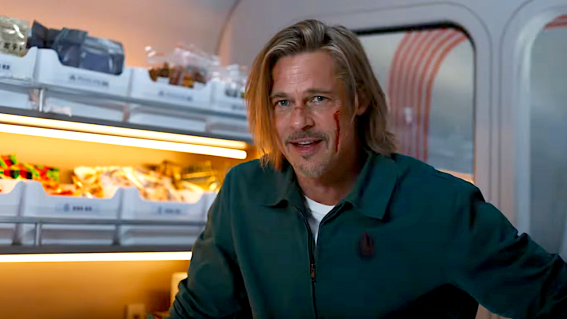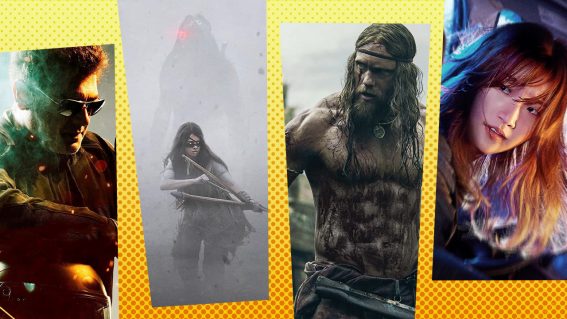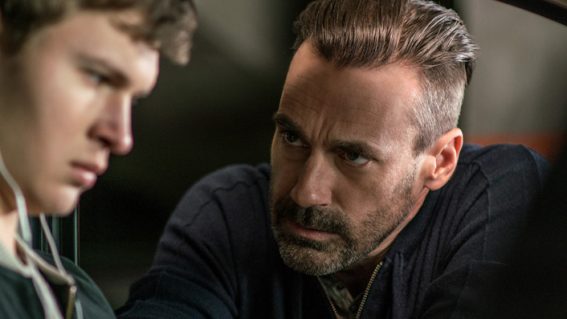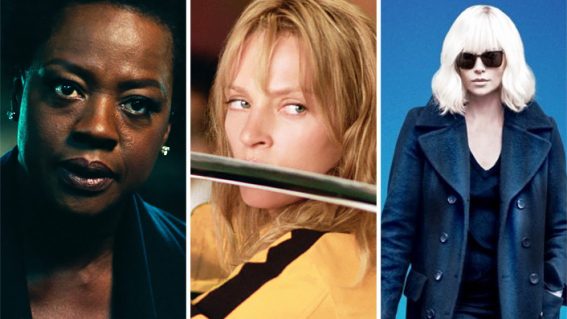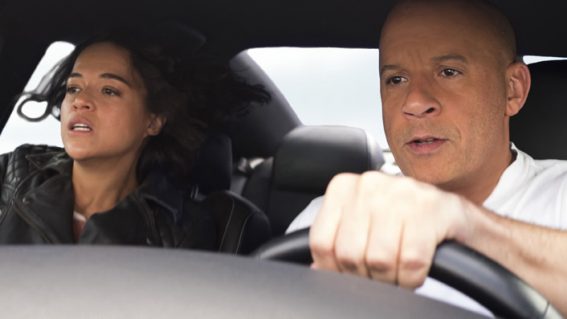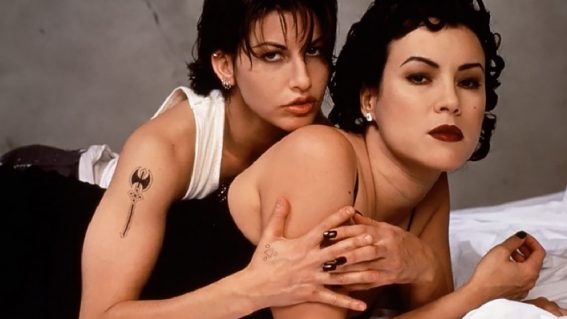Bullet Train is a fun 90s throwback, and nothing more or less
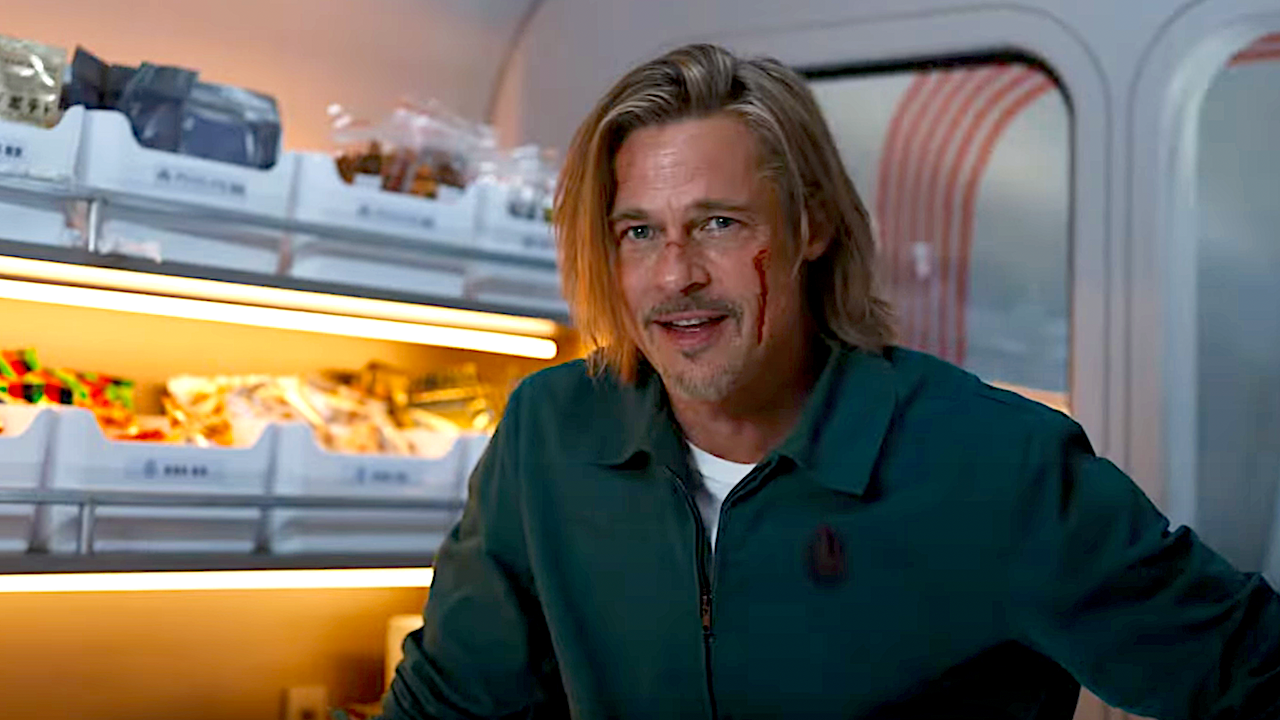
Brad Pitt stars in this ensemble action-comedy from the co-director of John Wick, a violent tangle of killers and crooks all aboard a high-speed shinkansen (or Bullet Train) heading from Tokyo to Kyoto. Travis Johnson joins them for the ride.
Bullet Train
Reluctant hitman Ladybug (Brad Pitt in a goofy mood) has forsworn violence and is working on his equanimity with various mindfulness techniques so his handler (Sandra Bullock) sets him up with what should be a very simple—and crucially, nonviolent—job: snatch a briefcase being carried on a bullet train from Tokyo to Kyoto.
Seems simple enough, but this is an action movie and so “simple and non-violent” was never really on the cards. A lot of other people want that briefcase, or want to kill each other, or even our man Ladybug, who is trying really hard to be the change he wants to see in the world. There’s bickering British twins Tangerine (Aaron Taylor-Johnson) and Lemon (Brian Tyree Henry, the clear MVP), vengeful Mexican pistolero The Wolf (Bad Bunny), father and son swordsmen The Elder (Hiroyuki Sanada) and Kimura (Andrew Joji), ruthless schoolgirl Prince (freshly minted action legend Joey King of, funnily enough, The Princess), and more.
Why? It’s extremely complicated—overly so, in fact—but it all more or less comes down to a civil war within the yakuza clan led by White Death (Michael Shannon, whose performance will now join Robert Downey Jr’s in Tropic Thunder in “is this racist?” conversations).
But the twisty, more-smug-than-clever plot doesn’t really matter, the fun and the guns and the odd celebrity cameo and gruesome death do. Adapted from Kōtarō Isaka’s novel Maria Beetle by Zak Olkewicz and directed by David Leitch (Deadpool 2, Atomic Blonde) with considerable flair and absolutely zero restraint, Bullet Train is an action confection. The latest entry into what we now call “maximalist cinema” but used to call OTT, it’s loud and bright and frenetic, packed to the gills with well-choreographed and conceived action gags and a convoluted plot instead of meaningful themes or characters. It’s like being hit in the face by a shotgun loaded with sherbet and cocaine for two-and-a-bit hours. That’s the whole enchilada: you already know if it’s your thing or not.
It’s definitely my thing, or one of them. We used to get dozens of these things in the ‘90s after Tarantino got big and everyone was suddenly stumping up for motormouth crime movies drenched in black humour and well-executed, often nihilistic violence. The most fun was 1998’s The Big Hit, the best of the more self-serious crop was 1995’s Things to Do in Denver When You’re Dead, and the lasting legacy of this fecund little period? Guy Ritchie’s entire career.
Like its forebears, Bullet Train is not nearly as good as the films that inspired it, but that doesn’t mean it’s not a good time. Pitt is clearly having a ball, as is everyone else. The humour is crude and, from certain angles, at least borderline offensive and/or tone deaf in places, but generally lands lightly. The action is great—ex-stuntie Leitch knows his way around an action beat better than any “serious” director currently working, and the whole thing is always trying to entertain you, even if the hit rate sits at about 70%.
This is one of those films that is going to do decent Friday-night-at-home numbers for as long as electricity exists. It’s a reliable programmer—not too taxing, maybe a little too long and a bit too cocky, but still a precision-engineered piece of popcorn entertainment. And frankly, anyone who can’t enjoy a sword battle between Hiroyuki Sanada and Michael Shannon might be taking the whole enterprise a bit too seriously. Bring beer.





